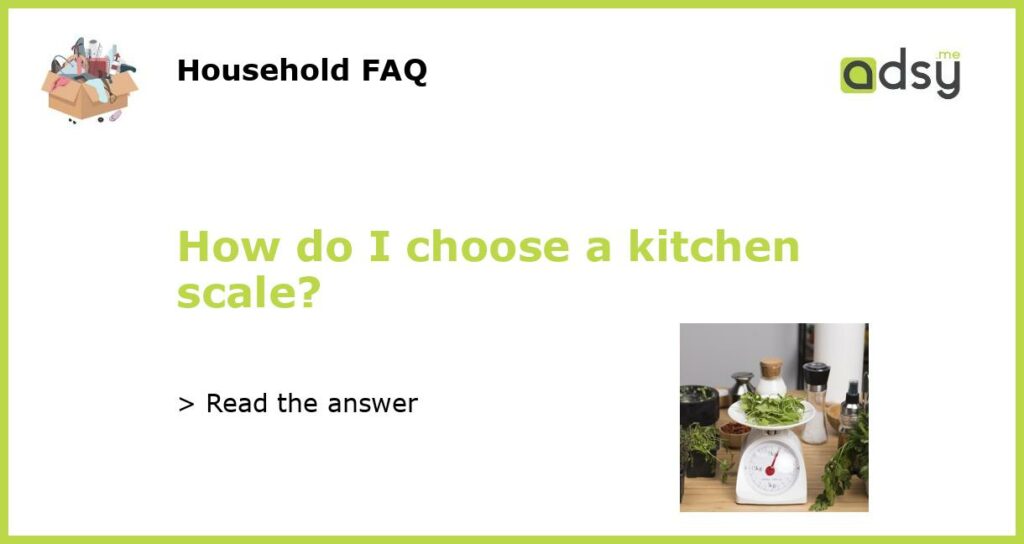Consider your cooking needs
Before choosing a kitchen scale, think about the types of recipes you typically cook. If you frequently make baked goods, you’ll want a scale that can measure small amounts accurately. If you meal prep or follow portion-controlled diets, you may want a scale that can weigh larger amounts of food. Additionally, consider if you want a scale with additional features such as a timer or tare function.
Decide on the type of kitchen scale
There are two main types of kitchen scales: digital and analog. Digital scales are more accurate and usually feature a backlit display for easy reading. They also tend to have additional features like the ability to switch between different units of measurement. Analog scales are simpler in design and do not require batteries, making them more eco-friendly.
Look at the maximum weight capacity
Most kitchen scales have a maximum weight capacity between 11 and 22 pounds. If you plan on weighing large cuts of meat or bulk ingredients, make sure to choose a scale with a higher weight limit. However, if you only plan on weighing small amounts of food, a lower weight capacity may suffice.
Check for accurate measurements
Accuracy is key when it comes to kitchen scales. Look for models that have a measurement increment of at least 1 gram or 0.1 ounce. Additionally, read reviews to see if users have had issues with inaccuracies or inconsistencies in measurements.
Consider the price
Kitchen scales range in price from under $10 to over $100. While you may be tempted to go for the cheapest option, keep in mind that cheaper scales may not be as accurate or reliable as more expensive ones. Additionally, more expensive scales often come with additional features or a higher weight capacity. Consider your budget and cooking needs before making a decision.






